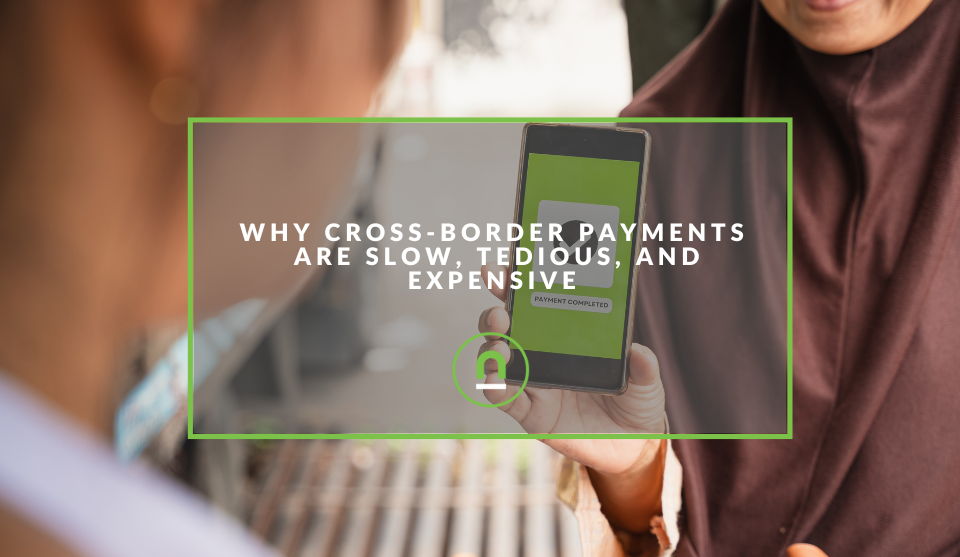Recent posts

Ace of Trades
The South African Industrial Tech Revolution
05 January 2026

nichemarket Advice
Why Video Production Companies Still Outshine AI
24 December 2025

Press Releases
Where You Can Find International Remote Jobs For South Africans
23 December 2025

Money Talks
Why Cross-Border Payments Are Slow, Tedious, and Expensive
17 December 2025
Popular posts
Extravaganza
Trending Music Hashtags To Get Your Posts Noticed
24 August 2018
Geek Chic
How To Fix iPhone/iPad Only Charging In Certain Positions
05 July 2020
Extravaganza
Trending Wedding Hashtags To Get Your Posts Noticed
18 September 2018
Money Talks
How To Find Coupons & Vouchers Online In South Africa
28 March 2019
9 Options If Your Business Does Not Qualify For State Relief
27 April 2020 | 0 comments | Posted by Che Kohler in Money Talks
The national lockdown has brought South African businesses to its knees, the draconian measures that have been put in place will be felt for years to come as thousands of local companies will not be able to operate and shut down. To mitigate some of the effects of the government-mandated lockdown due to COVID-19, an economic relief fund will provide businesses with financial assistance.
The South African governments Temporary Employer-Employee Relief Scheme or TERS will provide selected businesses with a financial buffer to assist in continued trade.
Unfortunately, the vast majority of small businesses may not qualify for economic relief due to limited availability and eligibility requirements. Having to deal with the fall out from the lockdown on your while others get assistance is a tough pill to swallow, but it doesn't mean you have to give up your business. There are still ways to drive revenue and maintain operations during and after the coronavirus pandemic.
If you're thinking about how you're going to keep your business afloat, here are nine ways your small business can keep making revenue if you don't qualify for a coronavirus relief loan from the government.
1. Look for local small business assistance programs and exemptions
The national government may have their projects, but it doesn't mean local governments won't try to provide aid. It is in their vested interest to keep their local businesses going, and your city or province may have created assistance programs or exemptions to help with financial impacts during this pandemic.
Many areas have established small business loan assistance programs and accelerator programs which may be underfunded but could be of help to you, should you reach out early enough.
2. Start a gift certificate program
Businesses need cash immediately, and a great way to generate cash upfront without having to operate is through gift cards, they can physically posted or digitally sent gift cards. Consumers can then redeem these gift cards at a later stage while you use the operating income to cover expenses and keep going.
3. Update your business model
Now might be the time to review your current operations and critically think about what will bring in the most money the fastest. The update could be through adding new services to your business model or cutting services that aren't revenue drivers. Consider selling products online, offering takeout or delivery, trying to add products that are in high demand, and more.
You can also consider accepting new forms of payment from credit cards to cryptocurrency to appeal to a broader audience and make it easier for them to buy from you. By adapting to the current situation, you build customer loyalty by ensuring customers that you can still offer what they want or need.
4. Offer promotions
Right now, almost everyone is worried about finances, and they're only going to be spending money freely on essentials if you are selling essentials that a great way to get customers in the door and upsell them on products with higher margins. Creating special offers on your products or services will encourage your existing customers to keep shopping with you.
Offering temporary discounts and promotions are also a smart way to build a base of new customers to offset slower sales. You may take a short term knock-in margin, but what you are doing is getting cash through the business, and when things settle down, you can work to convert those new customers into full-price, loyal customers.
5. Consider taking donations
It may not be for everyone but in times like these small businesses need to consider all their options. Some have started Go Fund Me campaigns to not only help their companies but to ensure their employees still have a source of income should they be temporarily out of work. You may have funds to cover expenses, but additional sources of income can help retain staff and serve as a great marketing campaign.
While crowdsourcing isn't always the foolproof method of gaining revenue, more people are willing to help during these trying times if they can. Promote your Go Fund Me to family, friends and loyal patrons.
Don't see donations as you begging for money but offer donators something tangible for their contribution, such as:
- Discounts on purchases in the future
- Lifetime access to certain benefits and perks
- Custom products with their name on
- Embellish their name in your store as one of your sponsors
- Create a custom thank you video and share it on your social media
- Promise to donate to charity the same value once your business is back on its feet
6. Sell equity in your business
A lack of cash flow for operations does not mean your business is worthless and holding on to your customer base and expanding it could be wildly profitable if you are to continue trading in the future. If this is the case and you feel you have a strong product-market fit, and all you require is a short term cash injection, then perhaps its time to sell a piece of the equity in your business.
Have a broker advise you on the value of your business and then pitch an angel investor or venture firm on how you will use the capital needed and how much equity you are willing to offer as well as an attractive exit for them.
7. Merge with another business
Cutting costs and remaining lean is going to be important for many businesses who continue to trade over the coming months. Combining with a complementary business could be a great way for both to share costs and remain sustainable. Complimentary services could be the easiest fix, such as combining auto parts store with an auto repair shop while non-competing services could also find unique ways to combine forces. An example would be an electronics retailer could combine with a coffee shop and share expenses on the store as well as cross-sell between both client bases.
This could be a temporary arrangement until both businesses have strong enough cash flow to trade on their own or who knows, it could even become a permanent arrangement over time.
8. Take out a business loan
The retail banks aren't the only option when it comes to business loans, and their rigid financial products may not suit your situation in any case. Another opportunity to get a quick injection of cash over a short period would be to approach local business lenders that specialise matching businesses with the correct funding options and responsible capital allocation. These business lenders not only provide financial help but often offer advice and networking services to help you access suppliers and more.9. Sell your business
If your heart is no longer in it, and you feel you've come to the end of your tenure another option would be to lean out your business and make sure it's running at its optimal level and putting it up for sale. Selling your business isn't a simple task and will require you to put together an attractive package and hold out for an offer, which won't be easy in this market. However, if you're business does have merit. Eventually, someone will see the value in taking it off your hands.Survival mode
Many businesses around South Africa and the world are now moving into survival mode and will need to explore a variety of options to remain in operation. How are you handling it? Which option seems right for your business? Let us know in the comments section down below.
Contact us
If you would like to know more about marketing for your business then don’t be shy we’re happy to assist. Simply contact us
Are you looking to promote your business?
South African small business owners can create your free business listing on nichemarket. The more information you provide about your business, the easier it will be for your customers to find you online. Registering with nichemarket is easy; all you will need to do is head over to our sign up form and follow the instructions.
If you require a more detailed guide on how to create your profile or your listing, then we highly recommend you check out the following articles.
Recommended reading
If you enjoyed this post and have a little extra time to dive deeper down the rabbit hole, why not check out the following posts on side hustles.
- 5 Tips for Funding Your Small Business
- Small Businesses That Can Go Digital During The Lockdown
- 10 Retail Market Secrets That Every Small Business Should Know
- Don't Ignore These 4 Digital Marketing Tips for Small Businesses
- 14 Ways To Leverage Facebook As A Small Business
- How South Africans Can Kickstart Their Side Hustle
- Alternative Funding Solutions a Small Business Needs to Know
- How South African Small Businesses Waste Money
Tags: COVID-19, Coronavirus
You might also like
The South African Industrial Tech Revolution
05 January 2026
Posted by Stephen Johnson in Ace of Trades
Explore how cutting-edge software and technology are driving the South African industrial tech revolution, optimising operations and boosting global ...
Read moreWhy Cross-Border Payments Are Slow, Tedious, and Expensive
17 December 2025
Posted by Che Kohler in Money Talks
While we have modernised many industries, surprisingly, digital payments are struggling to keep up, and the old way of transferring funds online has ...
Read more{{comment.sUserName}}
{{comment.iDayLastEdit}} day ago
{{comment.iDayLastEdit}} days ago
 {{blogcategory.sCategoryName}}
{{blogcategory.sCategoryName}}
